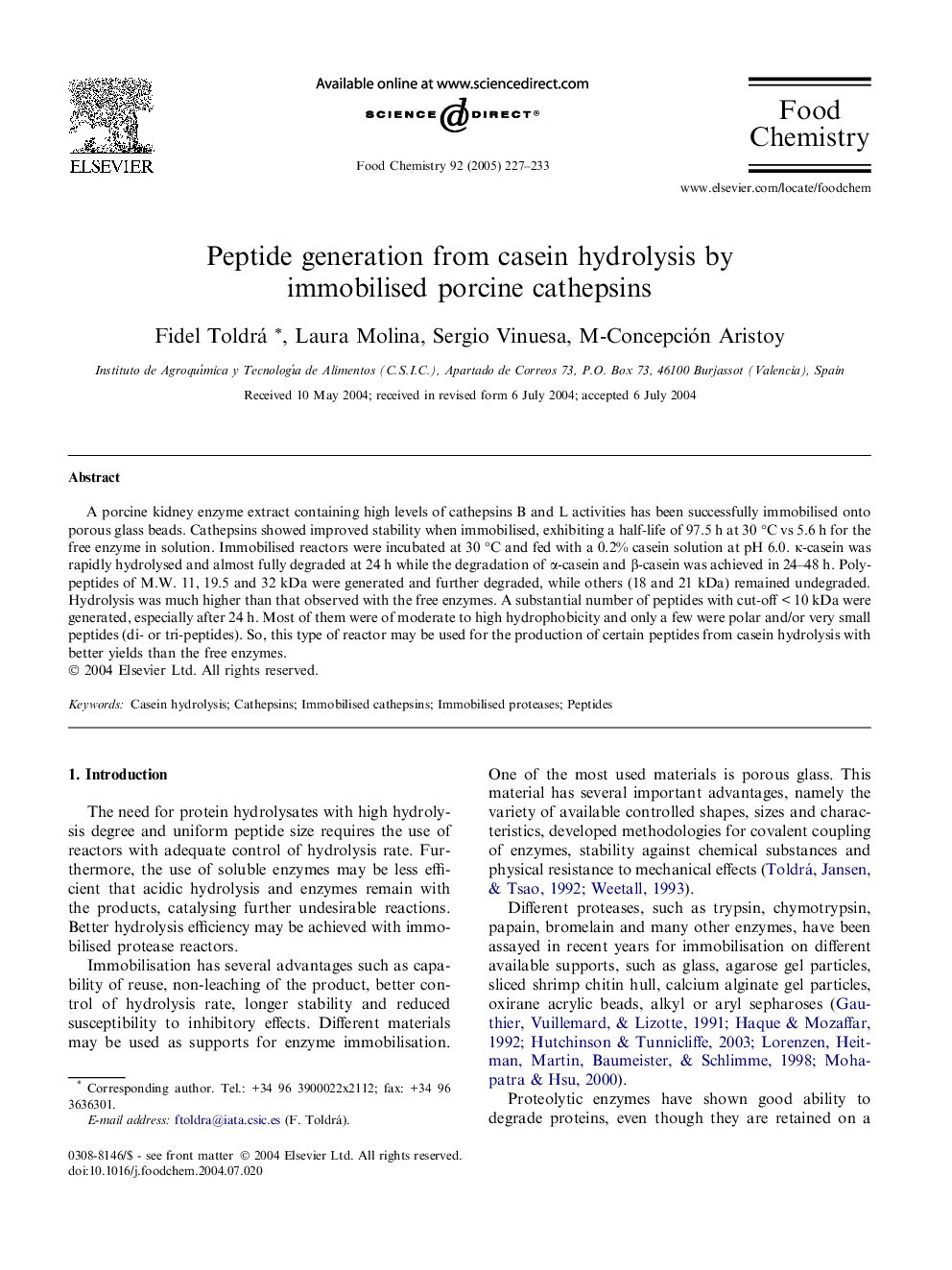| Article ID | Journal | Published Year | Pages | File Type |
|---|---|---|---|---|
| 10544150 | Food Chemistry | 2005 | 7 Pages |
Abstract
A porcine kidney enzyme extract containing high levels of cathepsins B and L activities has been successfully immobilised onto porous glass beads. Cathepsins showed improved stability when immobilised, exhibiting a half-life of 97.5 h at 30 °C vs 5.6 h for the free enzyme in solution. Immobilised reactors were incubated at 30 °C and fed with a 0.2% casein solution at pH 6.0. κ-casein was rapidly hydrolysed and almost fully degraded at 24 h while the degradation of α-casein and β-casein was achieved in 24-48 h. Polypeptides of M.W. 11, 19.5 and 32 kDa were generated and further degraded, while others (18 and 21 kDa) remained undegraded. Hydrolysis was much higher than that observed with the free enzymes. A substantial number of peptides with cut-off < 10 kDa were generated, especially after 24 h. Most of them were of moderate to high hydrophobicity and only a few were polar and/or very small peptides (di- or tri-peptides). So, this type of reactor may be used for the production of certain peptides from casein hydrolysis with better yields than the free enzymes.
Keywords
Related Topics
Physical Sciences and Engineering
Chemistry
Analytical Chemistry
Authors
Fidel Toldrá, Laura Molina, Sergio Vinuesa, M-Concepción Aristoy,
